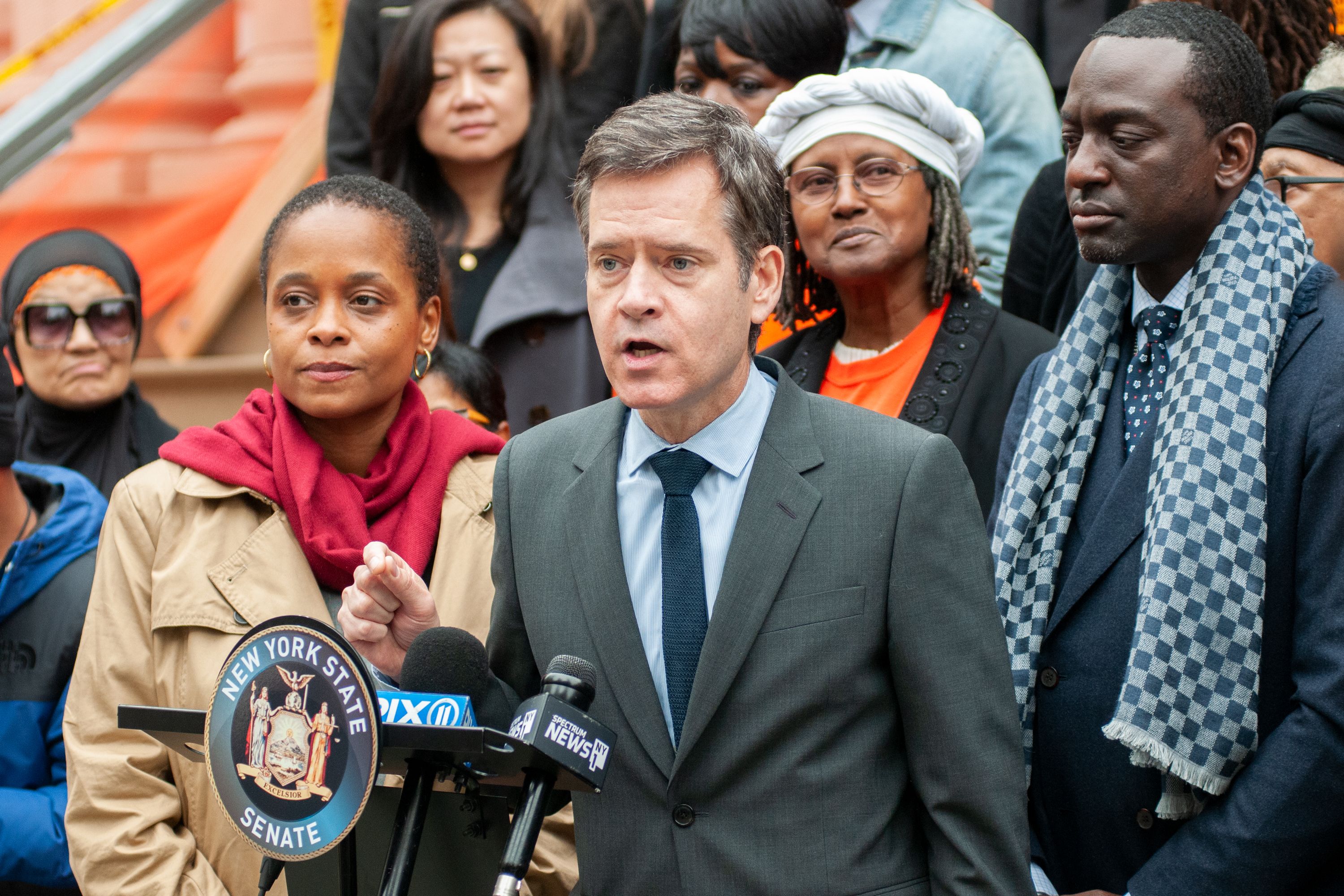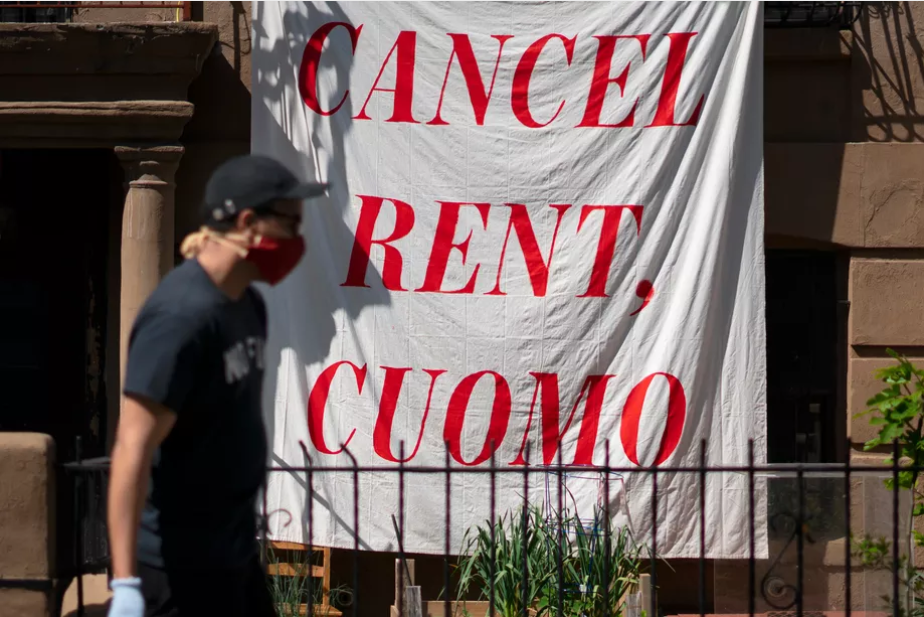By Rachel Holliday Smith, THE CITY
This article was originally published on by THE CITY
There’s an outside chance rising apartment vacancies due to COVID-19 could trigger an end to rent regulation in New York City — but two local lawmakers are looking to pandemic-proof tenant rights.
Twin bills were introduced in the State Senate and Assembly on Tuesday that would seek to protect regulated apartments by taking the vacancy rate out of the equation until well after the city emerges from the wide-ranging coronavirus crisis.
Rent regulation is legally underpinned by a decades-old definition of a “housing emergency” in New York, meaning less than 5% of available apartments are vacant.
If the housing stock goes above that figure, the longstanding argument for rent regulation — which some landlords have argued violates the U.S. Constitution — could go away.
The new legislation, introduced by Manhattan Democrats Sen. Brad Hoylman and Assemblyman Harvey Epstein, would put a pause on the official count of the city’s vacancy rate — completed by the city Department of Housing Preservation and Development and the U.S. Census Bureau — until two years after the state’s COVID-19 emergency declaration is over.
 Ben Fractenberg/THE CITY
Ben Fractenberg/THE CITY“This would forestall any ending of the housing emergency and allow the market to stabilize,” Hoylman told THE CITY on Wednesday.
The official vacancy tally, known as the Housing and Vacancy Survey, found New York had a 3.63% vacancy rate as of 2017. The next survey is set to be completed next year and released in 2022.
Playing the Long Game
Epstein said the goal of the legislation is to avoid having the next count be affected by temporary changes caused by New Yorkers who decided “short-term, not to stay” in the city.
“We don’t want that to have any impact on the structure … around affordable housing,” he said.
The legislation was introduced a day after THE CITY reported that rents are down and vacancies are up, inching toward the 5% benchmark.
In a statement, Kimberly Winston, a spokesperson for the landlord-run groups Rent Stabilization Association of NYC and the Community Housing Improvement Program (CHIP), slammed the bills. Both groups have sued to dismantle recent rent reforms in New York.
“This shows our elected officials aren’t interested in what’s really happening in the housing market or in solving problems,” Winston said. “They want to continue the disastrous policies of the last 50 years by penalizing property owners and pandering to constituencies they’re afraid of — and that is a terrible way to govern.”
Cea Weaver, a leader with the Housing Justice For All coalition, which successfully lobbied for the rent reforms passed in Albany in 2019, said she supports efforts to make sure rent regulation is not killed by a “temporary and probably unusual increase” in the vacancy rate.
But she’s not convinced there’s much of a chance for the rate to push past 5% — and is not buying CHIP’s recent figures on vacancy rates, including a survey by the group that showed vacancy rates for rent stabilized units had risen to 4.66% as of July 1.
“It’s in their interest to create fear around rent regulation,” Weaver said.
It remains to be seen whether the legislation will make it to Gov. Andrew Cuomo’s desk. But Epstein believes there will be plenty of support in Albany for the idea.
“We just strengthened the rent laws last year,” he said. “We’re not going to just let the vacancy rate result in losing all those protections.”
THE CITY is an independent, nonprofit news outlet dedicated to hard-hitting reporting that serves the people of New York.






































